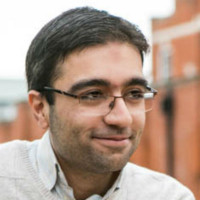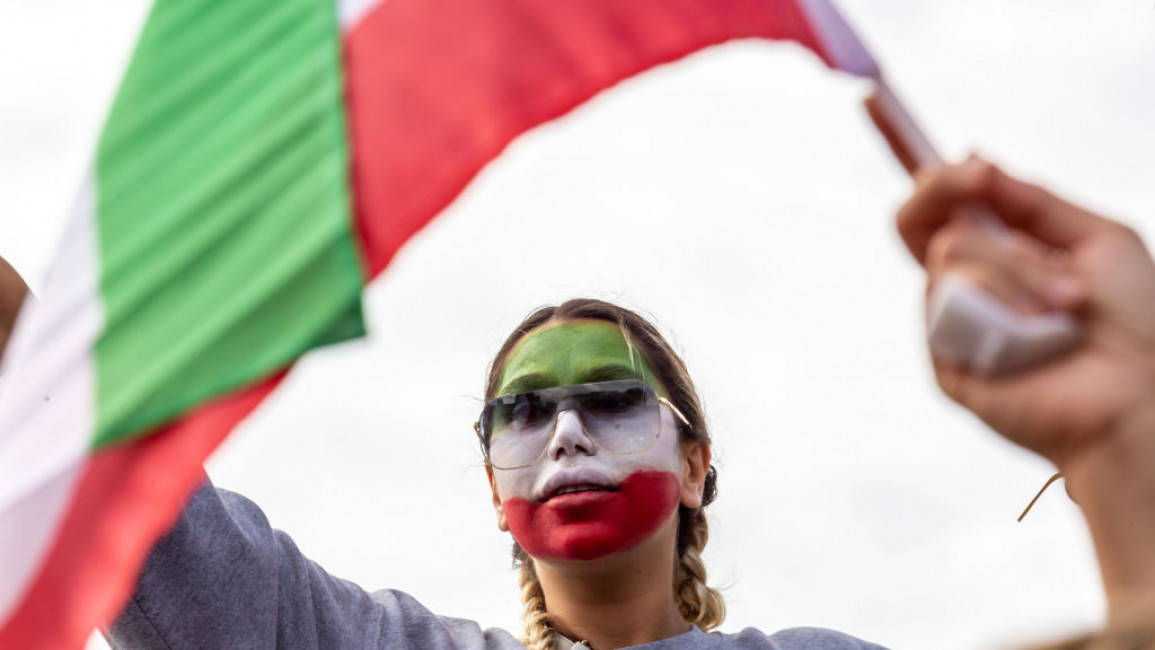
Iran hijab protests: The start of a new era?
There have been epoch-making moments in our collective memories that have brought about universal reckonings with long-lasting effects. The Montgomery bus boycott sparked by Rosa Parks in 1955 is a relatively distant example, and the Black Lives Matter movement following the killing of George Floyd by a Minneapolis police officer is a more recent occasion when abiding judgments began to recede and new narratives debuted.
Iran is now going through a comparable period of intellectual renaissance, and the death of Mahsa Amini, a 22-year-old woman arrested by the Islamic Republic morality police for an “improper hijab,” has ignited not only an uprising that epitomises people’s grievances, but also plants the seeds of a drastic rethinking of the orthodoxies that have enabled her loss.
After nearly four weeks, protesters are refusing to back down, and the international solidarity with the Iranian women has been monumental. From the former US President Barack Obama and his wife, to the Chilean President Gabriel Boric, from the legendary British musician Roger Waters to the UNHCR Special Envoy Angelina Jolie, from the Academy Award-winning French actress Juliette Binoche to Harry Potter author J. K. Rowling, global luminaries have been throwing their weight behind the people of Iran, adulating their peerless display of courage.
''Many of those who are at the heart of the protest movement do not acquiesce to this revolt being called a social movement. They urge that it’s termed a revolution, and insist it’s about radical change, with the ultimate vision being a transition away from the Islamic Republic.''
Now, the ancient Iranian tradition of women cutting off their hair in bereavement has evolved into a gesture of solidarity, with women across the world, on the European Parliament floor and on Indian TV shows, hacking off locks of hair to show that they share their Iranian sisters’ grief and frustration at this critical time.
In an ideal world, this gratuitous turmoil would have been pre-empted and people wouldn’t have put their lives on the line to have their voices heard. This entire clash is about the patriarchs of a theocracy deciding, based on a flawed reading of Islam, how women should dress and manifest their identity, and the Iranian women, mostly at the end of their rope, insisting that they cannot countenance this decision anymore – especially when it’s enforced at gunpoint.
The Islamic Republic determined shortly after its inception that it wanted to alchemise the religious tradition of hijab into a wellspring of power and project it as one of the pillars of its ideology-oriented gravitational pull. It started formalising the hijab mandate, criminalising the transgression of unveiled appearance in public, and invested considerably into appurtenant publicity and indoctrination. It transpired that the crusade didn’t bode well, neither for the revolutionary Iran nor for the religion it asserted it represented.
There was always a degree of compliance with the government-instructed strictures, and women continued to keep their headscarves on and wear long, loose-fitting robes -- they had no other choice. Some nuances were implanted in the style over time, but the original framework was never jettisoned.
Yet, myopia was so profound that for four decades, complaints about women not adhering to the codes strictly could be heard from the authorities in perpetuity and new initiatives were introduced one after the other raising the stakes for the “offenders.”
For different administrations coming to power since 1979, the enforcement of compulsory hijab has been a matter of priorities as well as power projection. Those who had more important things to do refused to let the already polarising hijab dogma further fragment the society even though the deep state pressed ahead with its muscle-flexing, whereas the more hidebound administrations hyped the “urgency” of upholding hijab as a smokescreen to obscure their statecraft impotence and economic, foreign policy imbecilities.
President Ebrahim Raisi is exactly engaged in this sort of political gimmick. Without acknowledging that he favours heightened restrictions on women’s agency or explicitly mentioning the name of the morality police, the hard-line cleric has given the nod to the security apparatus to ramp up punitive action on women on the streets. He also pumped heaps of money into the omnipotent religious watchdog the Initiative for the Promotion of Virtue and the Prevention of Vice – the mastermind of a constellation of restrictions on women.
It is on Raisi’s watch that religious institutions, state media and universities redoubled their propaganda campaigns on the exigency of compulsory hijab, and the president’s most ardent supporters, who in lockstep with their chieftain understand hijab as a leverage of power and compliance with it as a barometer of the state’s resilience, waged a cultural war in the public sphere and on social media to intimidate those who challenged this rigidity.
Corrosive encounters between women and the morality police mushroomed and self-ruling vigilantes driven by a supposedly moral obligation to purify the society became the unofficial agents of law enforcement.
Raisi was deluded enough to believe orchestrating a misogynistic plan of action and instilling fear in the society through reinvigorated morality police being ubiquitous could serve as an effective distraction and make up for his mortifying lack of administrative experience, his missing roadmap for the national economy and his diplomatic immaturity, manifested in a year of inertia on the Joint Comprehensive Plan of Action revival talks.
He was under the misguided impression that his base of ultra-conservative supporters would be rallying around the hijab cause, brandish strength and keep the society malleable.
That didn’t happen, and indeed excessive pressure boomeranged. The death of Amini was a boiling point that set off a social explosion rarely seen before, bringing decades of resentment to the surface.
Now, many of those who are at the heart of the protest movement do not acquiesce to this revolt being called a social movement. They urge that it’s termed a revolution, and insist it’s about radical change, with the ultimate vision being a transition away from the Islamic Republic.
There are already signals that the Islamic Republic might decide to relax some of the stringent regulations, including by rolling back the detested morality police from the streets. That’s a possibility, and international media has been reporting on it, with confirmations from residents in Tehran and other major cities. But to assume the establishment will come forward with a formal announcement of the annulment of the compulsory hijab is wishful thinking.
This mandate is a reputational matter for the state, and it won’t disavow a credo it has been fighting for since the birth of the Islamic Republic.
But a new reality is emerging, and it appears to be irreversible: more women in small and large cities have started to take off their headscarves, and the religious-minded women who have chosen the hijab voluntarily stand by them, supporting their basic rights.
Whether or not the government likes it, this is how the new generation of Iranians wish to co-exist and accept each other’s differences. It would be a Sisyphean task for the establishment to continually ignore and toil away at extinguishing this period of enlightenment.
Kourosh Ziabari is an award-winning Iranian journalist and reporter. He is the Iran correspondent of Fair Observer and Asia Times. He is the recipient of a Chevening Award from the UK's Foreign and Commonwealth Office and an American Middle Eastern Network for Dialogue at Stanford Fellowship.
Follow him on Twitter @KZiabari
Have questions or comments? Email us at: editorial-english@alaraby.co.uk
Opinions expressed here are the author's own, and do not necessarily reflect those of her employer, or of The New Arab and its editorial board or staff.



